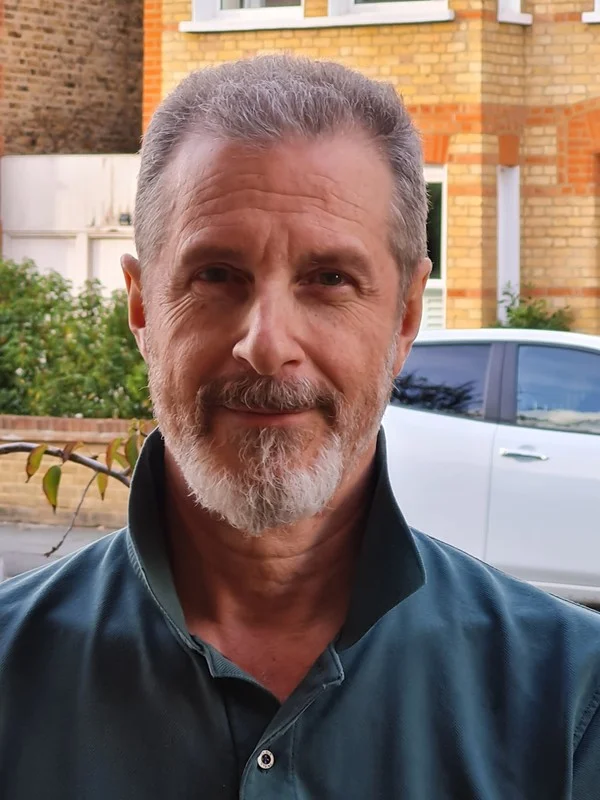LOGLINE – When two teenage guys, misfits, on their way to a party in 1975, flag down a witch-doctor-driven taxi, their girl expectations for the night turn stratospheric. Comedy disaster ensues, courtesy of a powerful, self-image-boosting voodoo potion, the effects of which are life-scarring. There is no redemption, and nobody learns anything.
TAGLINE – ‘bigger the fools, bigger the stars’
SYNOPSIS – A night-long, road comedy set in seventies, north-west England.
The paths of two girlfriendless, working class, teenage misfits are dramatically and hilariously altered by a ‘voodoo cabbie’ who collects them en route to a middle class, village party to which they have not been invited.
Granny and Tommo are unrelenting in their mockery of each other, kindred spirits though they are; Granny insisting they stick together for the night; Tommo, reticent of parties, doing all he can to get away.
Granny believes that imitating his kung fu teacher, an older northerner, Big Stan (who apparently beguiles teenage girls with cliché oriental wisdom), will be key to his success with females; while Tommo, resigned to life without females, wanting to mask his despondency, ridicules the naïveté of his companion’s exuberant believing.
From pub to pub, taxi to party, Granny and Tommo are battered, ‘shagged’ and humiliated beyond belief, courtesy of two merciless bouncers, two fat slags, a witch doctor and a limitless supply of middle class, party eccentrics.
Girls are won/lost, reputations gained/destroyed, all by the effects of a self-image-boosting juju potion, sold to Granny by the cabbie; Granny transforming himself (unintentionally) into a ‘wise’, kung fu superfool, with inhuman strength and immense mind powers; Tommo turning himself (involuntarily) into an obsessed, banana-grabbing monkey-pet, after failing to conjure himself into Rudolph Valentino, his otherwise preferred self-image.
Further conversions to arse-chewing bear and humorously polite defecator force Granny and Tommo out into the night, parting company and leaving behind a house-full of traumatized guests, for which, somehow, they go completely unpunished and remain curiously likeable, having learned absolutely nothing from their experiences.
Charismatic, anarchic, strangely enigmatic, Voodoo Valentinos invites audiences on a fast, dreamlike ride through the seventies night, painting portraits of some of life’s truest, unselfconscious clowns.

W
riters Statement:
I wrote Voodoo Valentinos during a particularly dark period of my life, from which screenwriting helped me hugely to escape, resulting in a screenplay that became, unsurprisingly, hugely escapist.
Before entertainment, or art or meaning, escape is what people look for first in a film, a comedy film especially. A screenplay motivated by a deep longing for escape will always make a good start.
For me, escape came in the form of an intensely nostalgic return to my seventies youth, in the picturesque, town-sized City of Chester (England) where, in sizing old acquaintances as prospective characters, I found myself ghosting around two old friends, of whom, for their charisma and brute-comical ways, I had always had strong, affectionate memories. I felt I could articulate them as leads and knew that they could give my screenplay the uncivilized start that its comedy demanded.
A curious thing then happened. Having just completed a film course in Central London, I flagged down a minicab driven by an enthusiastic African taxi driver, keen on selling me voodoo products from a brochure. Half an hour later, as I got out of his car, I knew what would be happening next in my screenplay, a macabre, sinister-looking cab would roll into the frame, witch doctor at the wheel.
This witch doctor, who would surface as a sort of unwitting messenger, would go on to fertilise the script richly, turning it into the darkly comedic night ride that it was ultimately destined to become, sending out an under-truth, that it is the fool, not the ‘wise one’, who is life’s greater being (greater self); fools being unwitting understanders of ‘greater life’, for as long, at least, as they remain fools.
I revelled in the writing of Voodoo Valentinos and was reluctant to have to leave it, content though I was that the characters would naturally neither learn from their experiences, in taking heed, nor grow from them in wisdom, rather that they would remain fools, guard their foolishness the more.
Voodoo Valentinos is a gutter-humoured brute which, like its characters, can be all too easy to disparage. It emits, by subterfuge, an under-message, the bringer of which is a shadowy taxi driver (and fool) who invites us into his taxi-world to escape, and to immerse in a gross innocence of humour which, outwardly, we agree we ought long to have abandoned, inwardly though we determine otherwise, for the sake of sanity. Indeed, it is this humour, long-evolved, must counter for us, powerfully, the brow-beating evangelism and outright presumption of latter-day moralizers.


Biography
Michael has written two feature film scripts, SACRED SUN (horror/fantasy) and VOODOO VALENTINOS (brute British comedy).
He is a former co-founder of London film business networking initiative FILM MEANS BUSINESS (no longer active) and a former trustee of WIMBLEDON FILM CLUB, for which he booked films, liaised with cinemas and distributors, introduced cinema screenings, wrote programme notes, interviewed guest speakers and organized ticket sales. He is currently a selector for WIMBLEDON INTERNATIONAL SHORT FILM FESTIVAL.
Michael lives in London, has a degree in economics from Liverpool University and is a former employee of NatWest International. He speaks reasonable Spanish, having worked in South America (continent of his birth) for two years, and, at 64, is married with two grown up children.